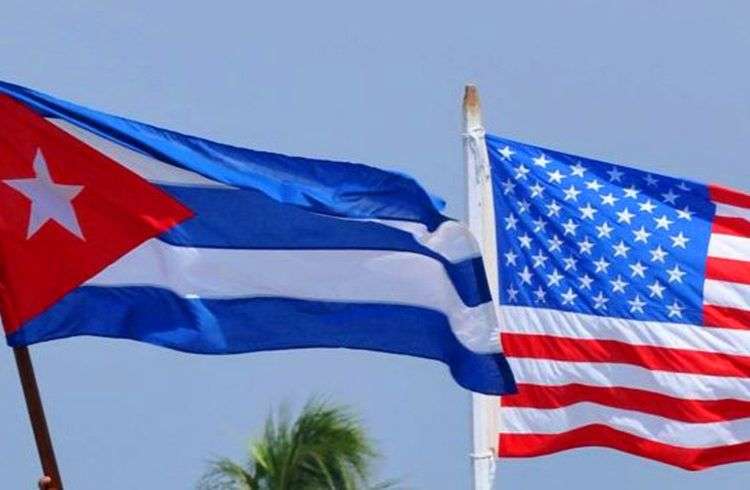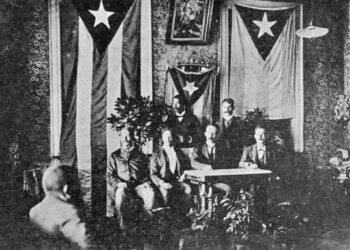By: Isabel Alfonso
The news of the reestablishment of diplomatic relations between Cuba and the United States on December 17 by President Obama has brought countless reactions within the Cubanologists. We can say in general, both within the conservative circle or among the liberal majority, this step by the Presisnt have been considered as positive. Curiously, such a policy-change event had to take place for part of the community to agree on two quite obvious truths: the embargo does exist and it is harmful for the Cuban people.
However, many of the opinions expressed exhibit the sinuosity of an ambiguous rhetoric and in some cases, even guilty, for accepting those changes as positive. Some have a sentimental approach, familiar, that takes into account the perspective of the historical exile, which see changes as an insult. Thus, Ruth Behar, in a beautiful article published in the Washington Post, acknowledges the symbolic charge of the announcement on December 17, St Lazarus Day, and along it, the positive of the change without leaving out his father´s reaction: Get ready for another 50 years of tiranny”. Endless joy. Joy but without leaving out the other´s pain.
Meanwhile, achy Ovejas is concerned about the definition of the self in the Cuban-American exile and the benefits acquired through the Cuban Adjustment Act: “Redefining U.S.-Cuban relations means giving up exile, every last speck of it. It means redefining who we are”. If diplomatic relations are restored that will mean that Cuban-American exceptionality will no longer make sense. This, for the author, seems to be an issue of existential conflict. Is it not? It isn’t quite clear in her article.“What Does Our Relationship With Cuba Mean for Cuban-Americans”. But she brings it out for a reason.
In the “El caso Cuba: entre la justicia y la piedad”, Daína Chaviano explains in a more effective way my argument. Chaviano starts by stating she never talks politics, but that recently she made an exception in her Twitter account to congratulate Obama on the measures (“God bless you, Mr. President @BarackObama. As a Cuban exile author and American citizen, I thank you for your new decisions about US policy”.) However, she seems to have been the receiving end of the Miami artillery fire when two days later she clarifies that ¨140 characters are not enough¨ therefore she wants to get deeper in an article.
The piece where she extends is not to clarify her tweet, as expected, but to justify the arguments the anti-Obama position uses to criticize the president´s decision:
Those who argue the measures proposed by Obama have mentioned, and rightfully so, the lack of human rights in the island, the repression against dissent, the lack of civil freedoms in Cuba. As any human being that loves freedom and justice, I am also worried about that situation that seems endless. While the American president speaks of openings, understanding, exchanges, of measures aimed at improving life standards of the average Cuban, Havana was still demanding the end of the blockage (as they call the embargo) the only pretext the Cuban government has to justify it disastrous economic management. Havana´s discourse failed to mention the changes they will have to make to reciprocate the actions of the American president, but I don’t think we should expect them.
What follows, mostly, is a log description of the wrongdoings of the Castro brothers in the island, spiced with the skepticism of the author on the efficacy of Obama´s new policy. The hope shown in a tweet seems to fade amid disappointment and negative attitude to see changes.
Chaviano´s article is a true example of the guilt and self-denial in which Cuban-American intelligentsia self-censor in case that at any given time had a positive thought on Cuba and the US, without attacking the Castro brothers. It is understandable. I can imagine the insults on Twitter against the author’s comment.
The quoted words are also part of a failed rhetoric, used not only by the author but by those who think US-Cuba relations in terms of a fake reciprocity. The idea that Cuba has to thank the neighboring nation for the lifting of the embargo by reshaping its domestic policy is part of a neocolonial way of thinking that cannot find space in today´s geopolitical map. The embargo was imposed unilaterally and against the same human rights it was, allegedly, bringing for Cuba. As such, it must be lifted unilaterally. It was and it is part of the bullying policies of the US not only against Cuba but throughout all the Cold War towards Latin America, in each attempt to destabilize any popular government that, though democratically elected like Salvador Allende´s, had sympathies towards the idea of a different socio-political system
The issue of human rights in Cuba, internet, internal changes that have to take place in the island, and that, slowly, are taking place, is totally valid, but it doesn’t fit in this context. Could we, once, keep honestly quiet, in this regard and address the issue in the proper context? Could we, once, stop using it as a shield against the poisonous darts of the decaying historical exile, whose hatred don’t allow them to see beyond the tip of their noses? Chaviano hurts her beautiful style when she refers to the three released Cuban agents as ¨three scumbags that conspired to kill human beings¨. Could we, once, drop the rhetoric of the insult, which attacks any attempt of reconciliation instead of encouraging it?
No author should have to ask for permission to express its ideas, whether in 140 characters or 140 pages. It is worrying that those that wish to legitimate the arrival of the Cuba-US relations to a maturity stage, back up or seems compelled to address issues that belong to another conversation. It is worrying to see guilt, fear and ambiguity to interfere with the events that don’t need to take place during Christmas to deserve celebration. Anyways, it is a reason to rejoice to see that despite sinuosity and subterfuges, we can already see light at the end of the tunnel.










